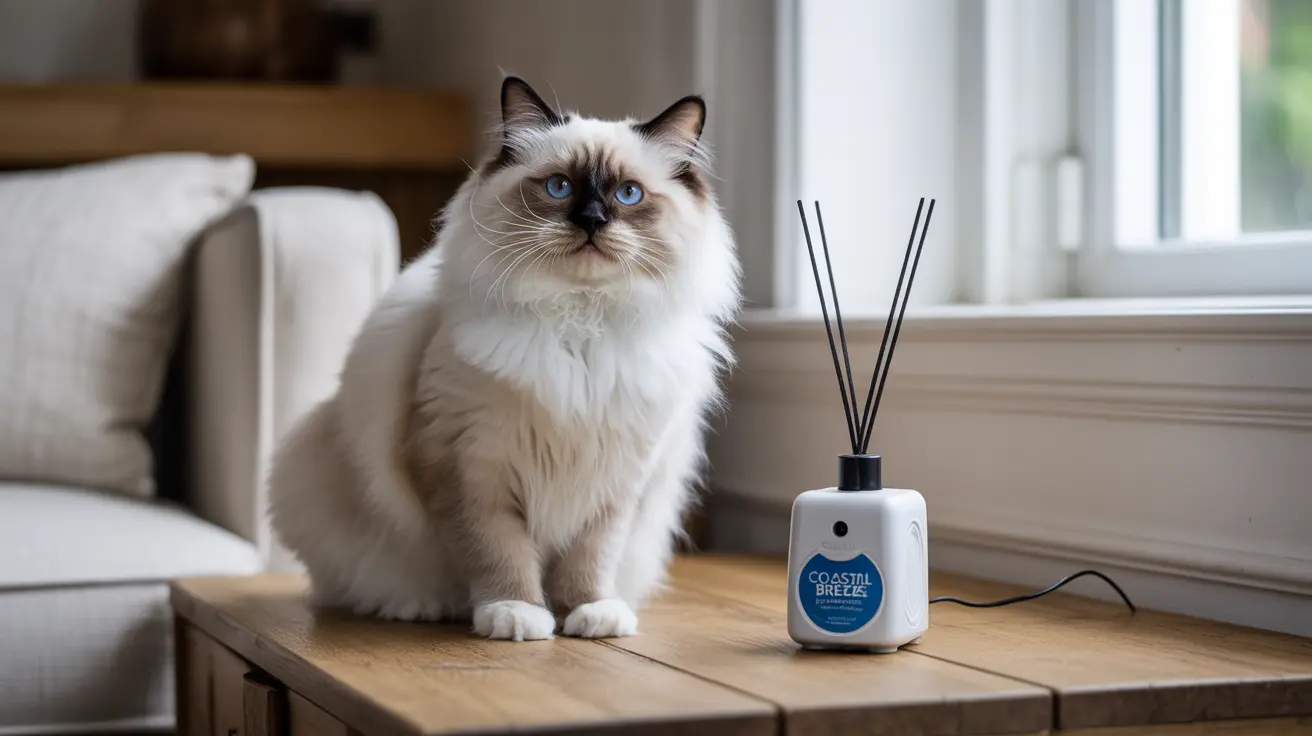If you're a cat owner who loves keeping your home fresh-smelling, you might be wondering about the safety of plug-in air fresheners around your feline friend. The answer from veterinary experts is clear: plug-in air fresheners pose significant health risks to cats due to their unique physiology and heightened sensitivity to airborne chemicals.
In this comprehensive guide, we'll explore why these common household products can be dangerous for cats, examine the specific health risks they pose, and provide safer alternatives for maintaining a fresh-smelling home without compromising your cat's well-being.
Understanding the Risks of Plug-In Air Fresheners
Plug-in air fresheners release a continuous stream of chemicals, including volatile organic compounds (VOCs) and phthalates, into your home's air. While these substances can affect all household members, cats are particularly vulnerable due to their sophisticated respiratory systems and grooming habits.
Most concerning is that cats possess up to 200 million odor-sensitive cells in their noses - compared to just 5 million in humans - making them extremely sensitive to artificial fragrances and chemical irritants.
How Air Fresheners Affect Your Cat's Health
Immediate Health Concerns
Cats exposed to plug-in air fresheners commonly experience several acute symptoms:
- Respiratory issues (coughing, wheezing, difficulty breathing)
- Watery eyes and nasal discharge
- Sneezing and throat irritation
- Lethargy and loss of appetite
- Digestive problems including vomiting and diarrhea
Long-Term Health Risks
Prolonged exposure to air freshener chemicals can lead to serious health complications:
- Chronic respiratory conditions
- Hormone disruption
- Liver and kidney problems
- Potential increased cancer risk
- Development or worsening of feline asthma
The Science Behind Cat Sensitivity
Cats are uniquely vulnerable to air freshener toxins through multiple exposure routes:
- Inhalation of airborne chemicals
- Absorption through skin and paw pads
- Ingestion during grooming
- Accumulation of chemicals in their system over time
Safe Alternatives for a Fresh-Smelling Home
Natural Odor Control Methods
Consider these pet-safe alternatives to maintain fresh air:
- Open windows regularly for natural ventilation
- Use activated charcoal odor absorbers
- Place bowls of baking soda in problem areas
- Maintain clean litter boxes and pet bedding
- Invest in a HEPA air purifier
Preventive Measures
Take these steps to minimize household odors:
- Clean spills and accidents promptly
- Wash pet bedding weekly
- Vacuum regularly with a pet-specific vacuum
- Keep litter boxes in well-ventilated areas
Frequently Asked Questions
Are plug-in air fresheners safe to use indoors if I have a cat?
No, plug-in air fresheners are not safe to use around cats. The chemicals they release can cause both immediate and long-term health problems for felines, whose respiratory systems are much more sensitive than humans'.
What chemicals in plug-in air fresheners are harmful to cats, and what health problems can they cause?
The main harmful chemicals include phthalates and VOCs (volatile organic compounds). These can cause respiratory issues, hormone disruption, liver problems, and in some cases, may contribute to the development of cancer. Even short-term exposure can lead to symptoms like coughing, sneezing, and digestive upset.
How does a cat's sensitive sense of smell make them more vulnerable to air fresheners than humans?
Cats have up to 200 million odor-sensitive cells in their noses compared to humans' 5 million, making them exponentially more sensitive to artificial fragrances and chemicals. This heightened sensitivity means that even low levels of air freshener chemicals can cause significant distress and health issues for cats.
Conclusion
While plug-in air fresheners might seem like a convenient solution for household odors, they pose substantial risks to your cat's health. Instead of using these chemical-based products, opt for natural alternatives and proper cleaning practices to maintain a fresh-smelling home that's safe for your feline companion.
Remember, your cat's health and safety should always come first. If you're currently using plug-in air fresheners, consider removing them and transitioning to pet-safe alternatives to create a healthier environment for both you and your cat.






